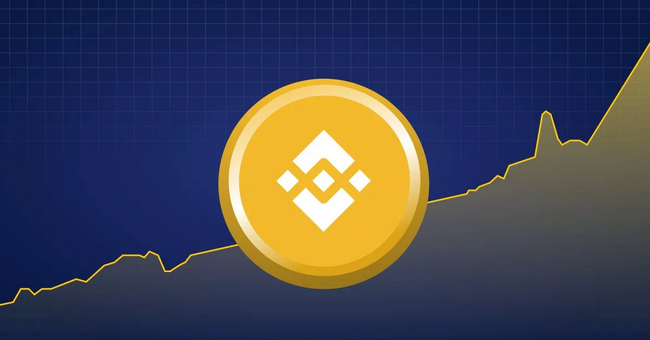-
 Bitcoin
Bitcoin $82,639.3085
1.31% -
 Ethereum
Ethereum $1,896.2043
-1.19% -
 Tether USDt
Tether USDt $0.9999
0.01% -
 XRP
XRP $2.2023
3.20% -
 BNB
BNB $557.4432
-0.66% -
 Solana
Solana $124.3170
0.24% -
 USDC
USDC $1.0000
0.01% -
 Cardano
Cardano $0.7337
0.15% -
 Dogecoin
Dogecoin $0.1669
4.00% -
 TRON
TRON $0.2214
-3.88% -
 Pi
Pi $1.6627
21.16% -
 UNUS SED LEO
UNUS SED LEO $9.9011
1.59% -
 Hedera
Hedera $0.2012
0.33% -
 Chainlink
Chainlink $13.1092
1.10% -
 Stellar
Stellar $0.2550
0.48% -
 Avalanche
Avalanche $17.8043
3.66% -
 Shiba Inu
Shiba Inu $0.0...01224
4.76% -
 Sui
Sui $2.2445
2.70% -
 Litecoin
Litecoin $89.8702
0.95% -
 Toncoin
Toncoin $2.6907
2.46% -
 Bitcoin Cash
Bitcoin Cash $334.3129
-1.88% -
 Polkadot
Polkadot $3.9781
0.10% -
 MANTRA
MANTRA $6.3278
1.22% -
 Ethena USDe
Ethena USDe $0.9993
-0.02% -
 Dai
Dai $1.0000
0.00% -
 Bitget Token
Bitget Token $4.1752
0.93% -
 Hyperliquid
Hyperliquid $13.0508
-9.19% -
 Monero
Monero $206.6736
1.18% -
 Uniswap
Uniswap $6.0153
0.76% -
 Aptos
Aptos $5.1699
-7.51%
can you send bnb to eth address
By utilizing a cross-chain bridge, users can seamlessly transfer BNB from the Binance Smart Chain to an ETH address on the Ethereum network, enabling interoperability between distinct blockchain ecosystems.
Nov 13, 2024 at 09:48 am

Can You Send BNB to an ETH Address?
In the interconnected world of blockchain technology, cross-chain transactions have become increasingly important. With different blockchains serving distinct purposes and hosting unique communities, the ability to move assets between them seamlessly is crucial. One common question that arises is whether it is possible to send BNB, the native cryptocurrency of the Binance Smart Chain, to an ETH address on the Ethereum network.
The answer to this question is yes, it is possible to send BNB to an ETH address, but it requires an additional step known as cross-chain bridging. Cross-chain bridging involves using a bridge protocol to transfer assets from one blockchain to another. In the case of sending BNB to an ETH address, you can utilize a cross-chain bridge that supports both Binance Smart Chain and Ethereum.
Here's a detailed guide on how to send BNB to an ETH address using a cross-chain bridge:
Step 1: Choose a Cross-Chain Bridge
The first step is to choose a reliable and reputable cross-chain bridge that supports both Binance Smart Chain and Ethereum. Several reputable bridges are available, such as:
- Binance Bridge: A bridge operated by Binance, the company behind Binance Smart Chain.
- Multichain (formerly Anyswap): A decentralized cross-chain bridge that supports a wide range of blockchains.
- Celer cBridge: A scalable and secure cross-chain bridge that offers low transaction fees.
Step 2: Connect Your Wallet
Once you have chosen a cross-chain bridge, you need to connect your cryptocurrency wallet to the bridge. Most bridges support popular wallets such as MetaMask, Trust Wallet, and Coinbase Wallet. Connect your wallet to the bridge by following the instructions provided on the bridge's website or mobile app.
Step 3: Select Binance Smart Chain (BSC) as the Source Chain
After connecting your wallet, you need to select Binance Smart Chain (BSC) as the source chain, which is the blockchain where your BNB is currently held. Specify the amount of BNB you want to transfer and provide the ETH address where you want to receive the funds.
Step 4: Select Ethereum (ETH) as the Destination Chain
Next, select Ethereum (ETH) as the destination chain, which is the blockchain where the ETH address you provided is located. Confirm the transaction details, including the amount of BNB to be transferred, the ETH address, and the gas fees associated with the transaction.
Step 5: Approve and Initiate the Bridge
Before the bridge can execute the transaction, you will need to approve the transfer of BNB from your wallet. This step is necessary to authorize the bridge to access and transfer your funds. Once you approve the transaction, the bridge will initiate the cross-chain transfer.
Step 6: Wait for the Transaction to Complete
The cross-chain transfer may take several minutes or even hours to complete, depending on the congestion on the blockchain networks involved. You can monitor the progress of the transaction on the bridge's website or mobile app. Once the transaction is complete, the BNB will be available in the ETH address you provided.
Important Notes:
- Network Fees: Cross-chain transactions typically involve network fees, which may vary depending on the bridge and the blockchain networks involved.
- Transaction Time: Cross-chain transfers can take longer than regular cryptocurrency transfers due to the additional steps involved in bridging between blockchains.
- Bridge Security: It's crucial to use reputable and secure cross-chain bridges to avoid potential security risks. Research the bridge's background and reviews before using it.
Disclaimer:info@kdj.com
The information provided is not trading advice. kdj.com does not assume any responsibility for any investments made based on the information provided in this article. Cryptocurrencies are highly volatile and it is highly recommended that you invest with caution after thorough research!
If you believe that the content used on this website infringes your copyright, please contact us immediately (info@kdj.com) and we will delete it promptly.
- Current Situation: Pump.fun Revenue Drops Sharply
- 2025-03-12 17:25:50
- VanEck Files to Launch an Avalanche (AVAX) Exchange-Traded Fund (ETF) in the United States
- 2025-03-12 17:15:50
- Dogecoin (DOGE) Could Set a New All-Time High Above the $2 Mark
- 2025-03-12 17:10:50
- BTC Bull – Creating a Community of Bitcoin Bulls and Offering Perks
- 2025-03-12 17:10:50
- The Crypto Market Never Sleeps: Qubetics ($TICS), XRP, Binance Coin, and Tron Are Leading the Charge
- 2025-03-12 17:10:50
- SEC Delays Decision on Cryptocurrency Spot Exchange-Traded Funds (ETFs)
- 2025-03-12 17:10:50
Related knowledge

What is Ethereum’s Slashing mechanism and how to punish malicious behavior?
Feb 20,2025 at 03:08am
Key PointsOverview of slashingDifferent types of slashing in EthereumIncentives and consequences of slashingIdentifying and reporting slashed validatorsOngoing discussions and potential improvementsEthereum's Slashing Mechanism: Punishing Malicious BehaviorEthereum's slashing mechanism is an essential tool for ensuring network security and punishing mal...

What is the verifier node of Ethereum and how to become a verifier?
Feb 19,2025 at 06:00pm
The Verifier Node of Ethereum: A Comprehensive GuideKey Points:What is a Verifier Node?How to Become a Verifier NodeResponsibilities and Rewards of a Verifier NodeMinimum Requirements for Becoming a Verifier NodePotential Difficulties in Running a Verifier Node1. What is a Verifier Node?A Verifier Node is an independent entity on the Ethereum network th...

What is Ethereum’s staking, and how to participate and earn money?
Feb 19,2025 at 04:37pm
Key Points:Understanding Ethereum's Staking MechanismSteps to Participate in StakingBenefits and Rewards of StakingSecurity and Risk ConsiderationsTechnical Requirements and Hardware OptionsPotential Challenges and Troubleshooting TipsFAQs on Ethereum StakingWhat is Ethereum's Staking?Proof-of-Stake (PoS) is a consensus mechanism used in blockchain netw...

What is Ethereum’s DAO (Decentralized Autonomous Organization) and how does it work?
Feb 20,2025 at 03:12am
Key PointsDefinition and Structure of a DAOGovernance and Decision-Making in DAOsBenefits and Use Cases of DAOsChallenges and Limitations of DAOsWhat is Ethereum's DAO (Decentralized Autonomous Organization) and How Does It Work?Definition and Structure of a DAOA Decentralized Autonomous Organization (DAO) is an innovative governance and management fram...

What is Ethereum's multi-signature wallet and how to improve security?
Feb 20,2025 at 02:18pm
Key Points:Understanding the Concept of a Multi-Signature WalletBenefits and Drawbacks of Multisig WalletsRequirements for Setting Up a Multisig WalletStep-by-Step Guide to Generating a Multisig WalletImplementing Strategies for Enhanced Security1. Understanding the Concept of a Multi-Signature WalletA multi-signature (multisig) wallet in the Ethereum e...

What is Ethereum's oracle and how to provide data for smart contracts?
Feb 21,2025 at 01:30am
Key Points:Understanding the concept of oracles in EthereumExploring different types of oraclesDetailed guide on how to provide data for smart contractsAddressing potential challenges and considerationsWhat is Ethereum's Oracle?Oracles are crucial components in the Ethereum ecosystem, enabling smart contracts to access real-world data and off-chain even...

What is Ethereum’s Slashing mechanism and how to punish malicious behavior?
Feb 20,2025 at 03:08am
Key PointsOverview of slashingDifferent types of slashing in EthereumIncentives and consequences of slashingIdentifying and reporting slashed validatorsOngoing discussions and potential improvementsEthereum's Slashing Mechanism: Punishing Malicious BehaviorEthereum's slashing mechanism is an essential tool for ensuring network security and punishing mal...

What is the verifier node of Ethereum and how to become a verifier?
Feb 19,2025 at 06:00pm
The Verifier Node of Ethereum: A Comprehensive GuideKey Points:What is a Verifier Node?How to Become a Verifier NodeResponsibilities and Rewards of a Verifier NodeMinimum Requirements for Becoming a Verifier NodePotential Difficulties in Running a Verifier Node1. What is a Verifier Node?A Verifier Node is an independent entity on the Ethereum network th...

What is Ethereum’s staking, and how to participate and earn money?
Feb 19,2025 at 04:37pm
Key Points:Understanding Ethereum's Staking MechanismSteps to Participate in StakingBenefits and Rewards of StakingSecurity and Risk ConsiderationsTechnical Requirements and Hardware OptionsPotential Challenges and Troubleshooting TipsFAQs on Ethereum StakingWhat is Ethereum's Staking?Proof-of-Stake (PoS) is a consensus mechanism used in blockchain netw...

What is Ethereum’s DAO (Decentralized Autonomous Organization) and how does it work?
Feb 20,2025 at 03:12am
Key PointsDefinition and Structure of a DAOGovernance and Decision-Making in DAOsBenefits and Use Cases of DAOsChallenges and Limitations of DAOsWhat is Ethereum's DAO (Decentralized Autonomous Organization) and How Does It Work?Definition and Structure of a DAOA Decentralized Autonomous Organization (DAO) is an innovative governance and management fram...

What is Ethereum's multi-signature wallet and how to improve security?
Feb 20,2025 at 02:18pm
Key Points:Understanding the Concept of a Multi-Signature WalletBenefits and Drawbacks of Multisig WalletsRequirements for Setting Up a Multisig WalletStep-by-Step Guide to Generating a Multisig WalletImplementing Strategies for Enhanced Security1. Understanding the Concept of a Multi-Signature WalletA multi-signature (multisig) wallet in the Ethereum e...

What is Ethereum's oracle and how to provide data for smart contracts?
Feb 21,2025 at 01:30am
Key Points:Understanding the concept of oracles in EthereumExploring different types of oraclesDetailed guide on how to provide data for smart contractsAddressing potential challenges and considerationsWhat is Ethereum's Oracle?Oracles are crucial components in the Ethereum ecosystem, enabling smart contracts to access real-world data and off-chain even...
See all articles

















































































